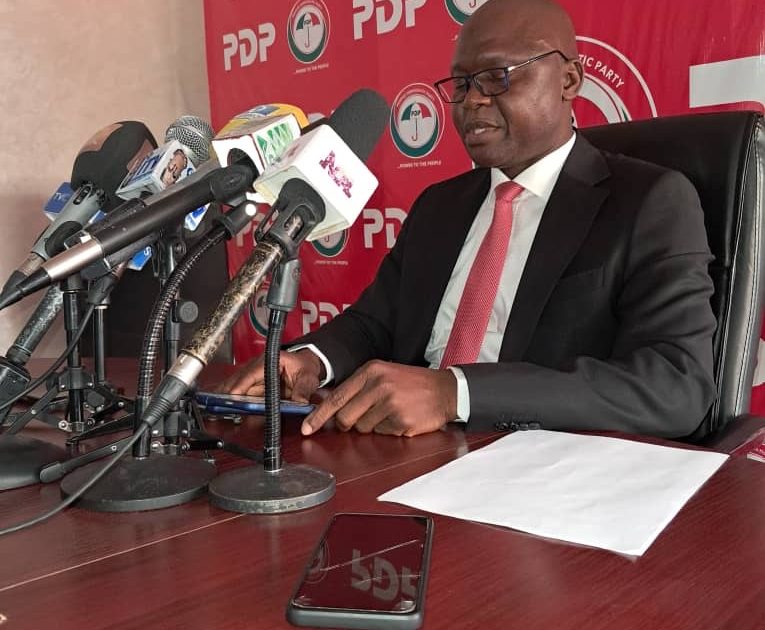The internal strife within the People’s Democratic Party (PDP) continues to fester, marked by conflicting statements and a power struggle over the party’s structure in Rivers State. The crux of the conflict lies in the dispute over the legitimacy of the Rivers State Executive Committee, with the party’s National Publicity Secretary, Debo Ologunagba, and Deputy National Publicity Secretary, Ibrahim Abdullahi, presenting contradictory narratives regarding the National Working Committee’s (NWC) stance on a court ruling concerning the state’s leadership. This internal discord underscores the deeper factionalism within the PDP, primarily between the camps of Rivers State Governor Sim Fubara and his predecessor, Nyesom Wike, now the Minister of the Federal Capital Territory.
The power struggle in Rivers State traces back to the ward, local government, and state congresses held in 2024. Wike’s faction secured control in these elections, while Fubara’s allies boycotted the process, citing a court order. This boycott and the subsequent legal challenge highlight the deep divisions within the state chapter of the PDP, with both factions vying for control of the party machinery. The court ruling in January 2025, which restrained the Wike-aligned executive committee led by Aaron Chukwuemeka from functioning, further complicated the situation. This legal intervention, rather than resolving the dispute, appears to have exacerbated tensions and fueled the ongoing war of words between the party’s national spokespersons.
Ologunagba’s statement acknowledging the court ruling and recognizing the Fubara-aligned group led by Nname Robinson Ewor as the legitimate state executive was swiftly countered by Abdullahi. Abdullahi asserted that the NWC had not met since September 2024 and therefore could not have officially recognized the Ewor-led faction. This public contradiction not only exposes the internal communication breakdown within the PDP but also raises questions about Ologunagba’s authority to issue statements on behalf of the NWC without proper consultation and approval. Abdullahi’s accusation that Ologunagba is acting on personal sentiments rather than adhering to party protocol further intensifies the internal conflict.
The ongoing dispute reflects a broader pattern of unauthorized statements and actions by Ologunagba, according to Abdullahi. Similar incidents regarding court judgments in Imo and Ebonyi States underscore the concerns about Ologunagba’s conduct. Abdullahi emphasized that the National Publicity Secretary’s role requires adherence to established procedures and prior approval from the NWC, particularly the National Chairman, before issuing pronouncements on behalf of the party. This lack of adherence to protocol, Abdullahi argues, is causing significant damage to the party’s image and exacerbating existing tensions. The fact that Ologunagba remained unreachable for comment further fuels speculation and adds to the sense of disarray within the PDP.
The implications of this internal wrangling extend beyond the immediate power struggle in Rivers State. The public disagreement between senior party officials projects an image of disunity and instability, potentially undermining the PDP’s credibility and electoral prospects. This internal conflict also distracts from the party’s broader political agenda and its ability to effectively challenge its rivals. The continued infighting raises questions about the party’s leadership and its capacity to resolve internal disputes effectively. A failure to address these internal issues decisively could lead to further fragmentation and weaken the party’s overall strength.
The PDP’s internal crisis underscores the fragility of party unity and the potential for personal ambitions to overshadow collective goals. The ongoing conflict in Rivers State, compounded by the contradictory statements from national spokespersons, reveals a deeper malaise within the party. The lack of clear communication, adherence to established procedures, and respect for internal hierarchy threatens to further destabilize the PDP. Resolving this crisis requires strong leadership, adherence to party constitution, and a commitment to prioritize the party’s interests over individual ambitions. A failure to address these fundamental issues could have long-term repercussions for the PDP’s political fortunes.














